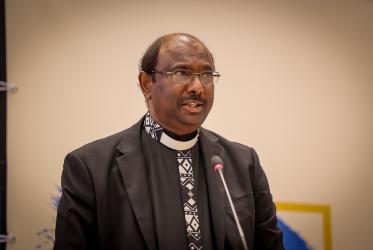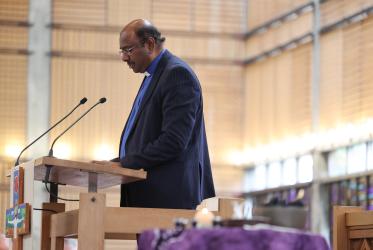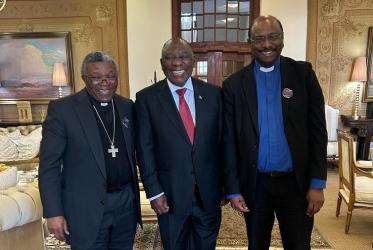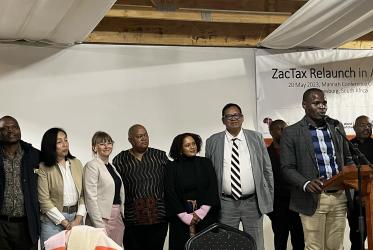Prof. Mary-Anne Plaatjies-Van Huffel is the World Council of Churches (WCC) president for Africa. A South African pastor and academic, she was the first female minister to be ordained by a Dutch Reformed Church in Southern Africa. She has recently been promoted to full professor of church history and church law, at the University Stellenbosch.
Q: Please accept the congratulations and good wishes of the WCC fellowship on your promotion to full professor. How are you envisioning your new role?
A: I’m so grateful for the promotion. I now have a leadership role within the faculty of theology. This means I can help give more people the opportunity to do research in the area of ecumenism. And, in today’s world, I believe in a theology of change, that we must redesign our curriculum so that students from different backgrounds can study theology together. We are also hoping to build a bigger cadre of people interested in post-graduate research.
Q: What are your hopes, on a collective level, for the church?
A: It is important for our churches across the globe to be doing their work in democratic societies, within nations that have many challenges. Churches must also govern themselves effectively within the context of a secular world, and bring about change in a way that is proactive.
Q: Has your involvement with the WCC helped you positively communicate messages about the ecumenical movement?
A: Receptive ecumenism aims to develop unity among many different Christian denominational perspectives. I attend conferences and speak about this topic, and I have published materials through the WCC - such as in the Ecumenical Review - and other organizations. My presidency within the WCC has positively impacted my research related to ecumenical issues. My involvement with the WCC has helped me to advocate for social change, peace and justice, and has influenced my deeper thinking about our changing world.






